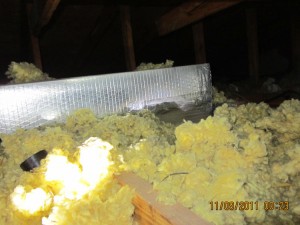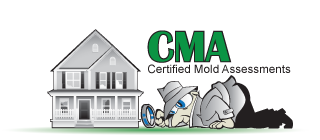 What’s your favorite season? For many people, the answer is summer—especially if you live in an area with distinct seasons and chilly winters. Everything comes alive, warmed by the sun. All of your favorite warm weather activities are possible once again, and it’s even possible to eat meals al fresco on your deck or patio.
What’s your favorite season? For many people, the answer is summer—especially if you live in an area with distinct seasons and chilly winters. Everything comes alive, warmed by the sun. All of your favorite warm weather activities are possible once again, and it’s even possible to eat meals al fresco on your deck or patio.
But summer is not without its own problems. As the dew point climbs and the air becomes more humid, the warmth and moisture creates ideal conditions for mold growth.
Mold is probably something you’d rather not have to think about while you’re enjoying these precious summer days and weeks, but ignoring the risks can have serious consequences. Not only is the air more conducive to mold growth, but falling rain (and even snowmelt from the previous spring) can lead to water damage—which in turn can lead to mold.
What’s the best way around this? Prevention. By thinking and planning ahead, you can stop mold before it becomes a problem—and enjoy your summer months without any nasty surprises.
Dehumidify & ventilate
There are many ways to go about this. You can buy “plug and play” dehumidifiers and ventilators from many retailers, and these can be quite effective in controlling humidity and ventilating air in smaller spaces. For a more comprehensive solution, it’s possible to integrate a professional-grade ventilator into your home’s HVAC system. Running your central air conditioner is also an effective way of taking humidity out of the air and preventing summertime mold; but doing this constantly can be more expensive than you want it to be.
Both dehumidification and ventilation are important because mold prefers humid, stagnant air. When your humidity is controlled and your air is consistently exchanged, the environment of your home will be far less hospitable to mold.
“Mold proof” your basement & attic
It’s no secret that mold loves to grow in basements and attics. Serious residential mold problems often start in these areas. There are many effective measures to make sure this doesn’t happen, but they do represent investments. Basements can be waterproofed with special techniques and materials, depending on the unique layout of your home. Attics can also be improved with mold-resistant insulation, ventilation systems, and other professional measures. A mold prevention expert may be able to help you determine whether these investments are worthwhile for you.
Go on mold patrol
This is perhaps the most obvious—yet often the most neglected—way to prevent mold. By walking through your home periodically, inspecting every nook and cranny for signs of mold, you can catch that mold invasion while it’s still in its infancy. You can also notice problem areas and excess moisture, and deal with these problems before mold colonies take advantage of them.
Call it in
Experts are out there, and they know basically everything there is to know about mold and mold-related problems. You might not need an expensive mold remediation effort—hopefully you don’t. But mold inspection, mold testing and prevention advice can go a long way toward having a mold-free summer.
Best of luck, and thanks for reading! Please comment below.

